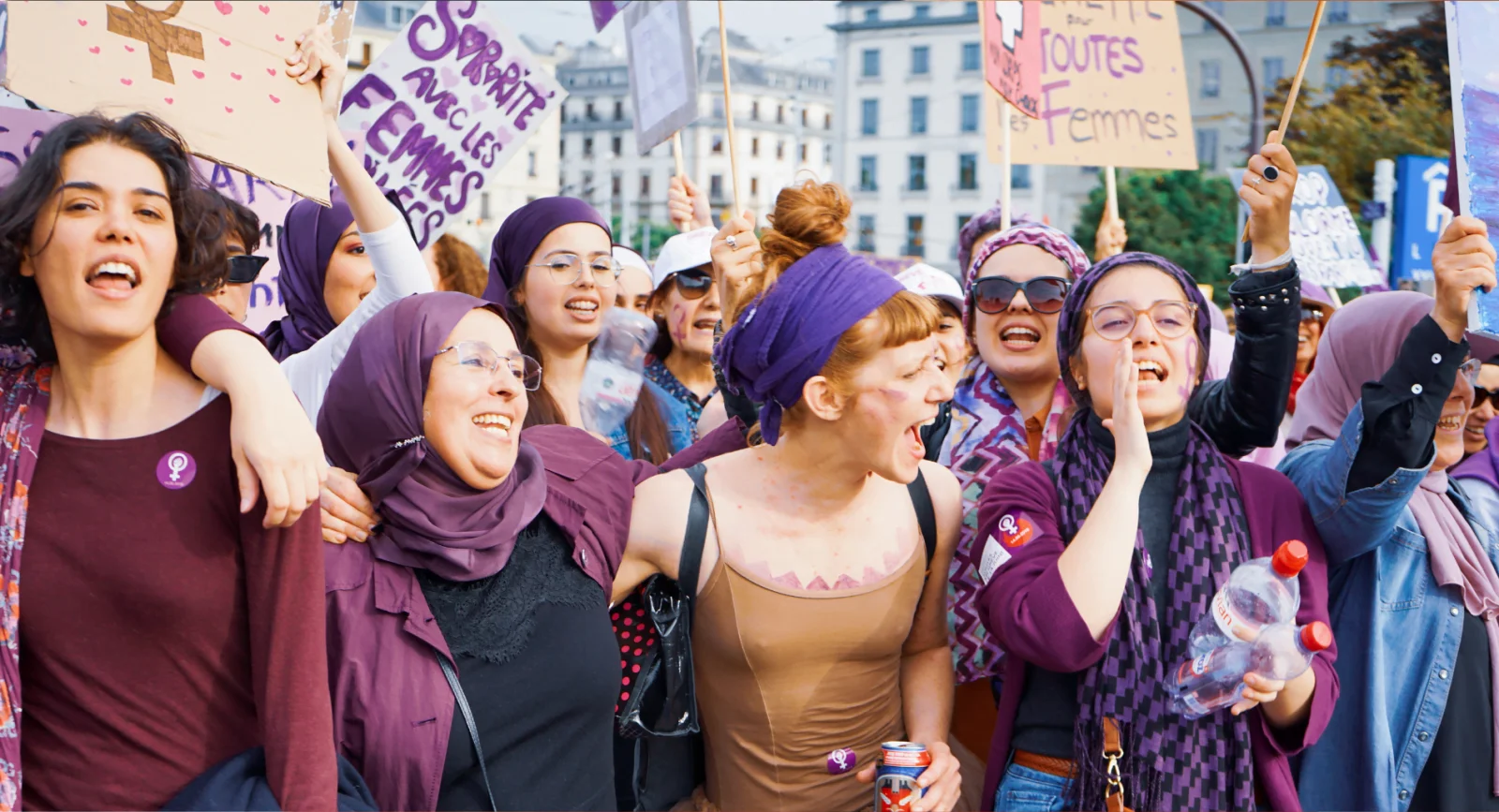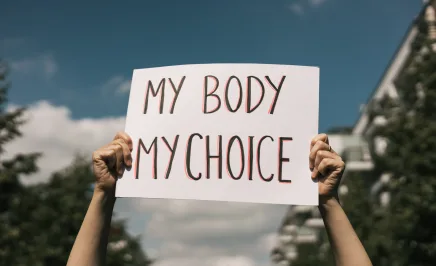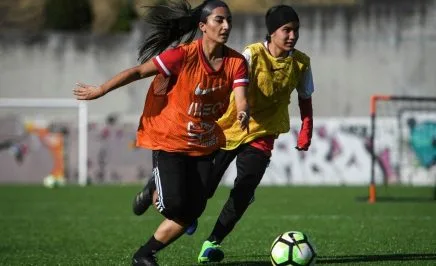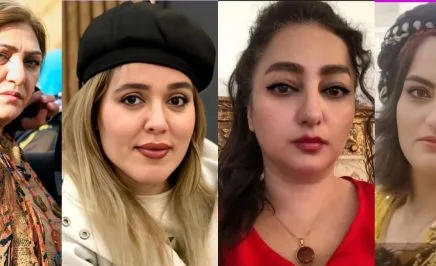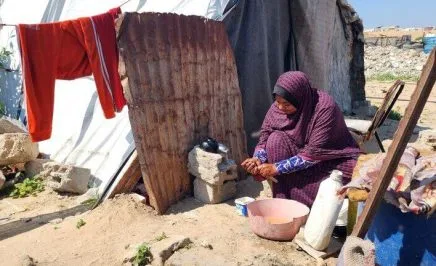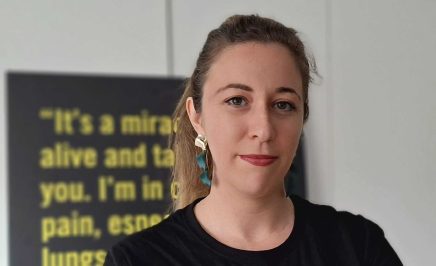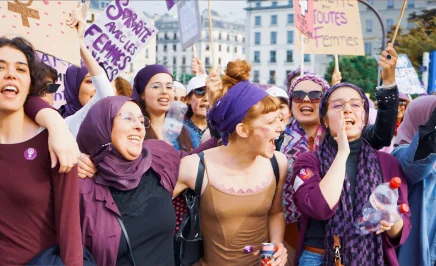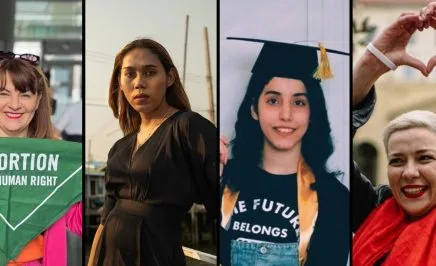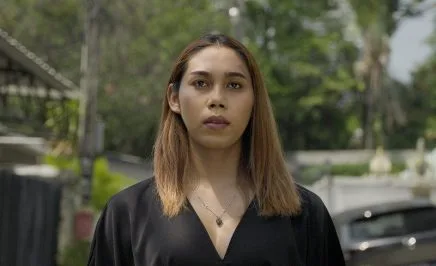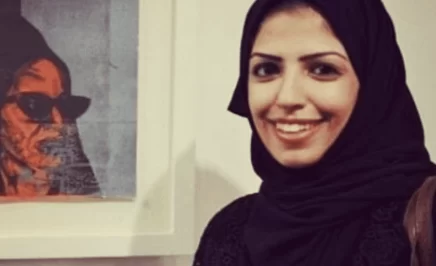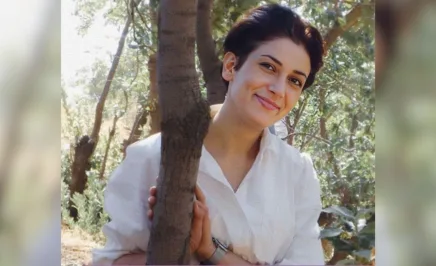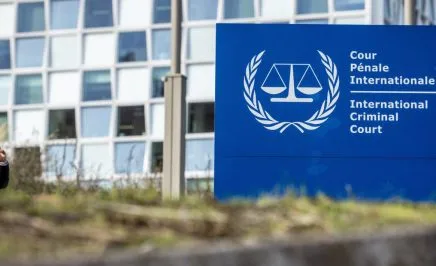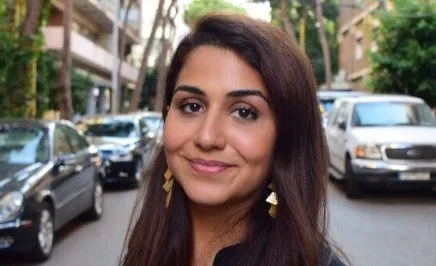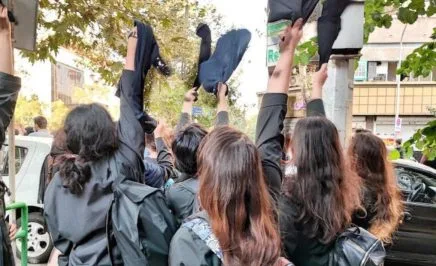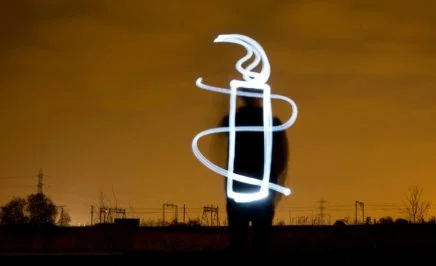What's wrong?
From Afghanistan to Australia, women face attacks on their human rights. But everywhere, women are rising up.
Read more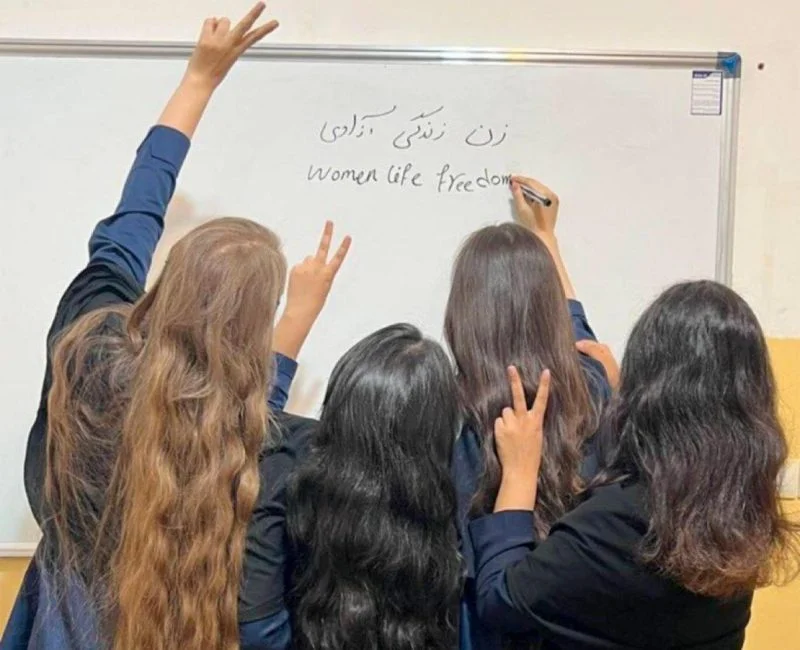
What are we fighting for?
Everything you need to know
All around the world, including in Australia, women suffer human rights abuses because of their gender. But wherever authorities try to break women’s spirits, they find instead an unstoppable force for change.
Through rigorous investigation and documentation, Amnesty International continues to expose an alarming worldwide regression of women’s rights. When authorities try to hide their crimes against women, we ensure the world bears witness.
In Afghanistan, the Taliban have effectively criminalised being a woman – banning education, work, and even speaking in public or praying in groups. But women continue to educate themselves, to protest, in the face of horrific persecution.
In Iran, authorities are waging a systematic campaign against women, confiscating cars for defying veiling laws and forcing attendance at “morality” classes. Yet the ‘Women, Life, Freedom movement’ grows stronger every day.
Even here in Australia, despite growing awareness, rates of gender-based violence continue to spike – and amidst a cost of living crisis overwhelmed support services have to turn away women seeking help.
Gender-based violence
Gender-based violence is a violation of human rights – and it is one of the most widespread human rights abuses in the world.
Around the world, gender based violence affects 1 in 3 women in their lifetime.
Violence, sexism, and discrimination is rife in Australia — in the military, in Parliament, in our schools, universities, and workplaces, and on our streets. 1 in 5 women will experience violence in an intimate relationship, while 1 in 5 have experienced sexual violence since the age of 15.
Trans women and gender diverse people experience sexual violence at twice the rate of the general population.
Aboriginal and Torres Strait Islander women – who also battle the ramifications of colonialism and racism – are 5 times as likely to experience physical violence, and 3 times as likely to experience sexual violence, than other women in Australia.
It is the responsibility of a state to protect women from gender-based violence. On 17 August 1983 Australia signed the Convention on the Elimination of All Forms of Discrimination against Women (CEDAW). In doing so, Australia committed to take action so Australian women can enjoy their fundamental rights and freedoms.
This isn’t happening. The Australian government isn’t doing enough. The government needs to take action so that every single woman and girl in this country will be free from gender-based violence.
Women. Life. Freedom.
Women and girls have been at the forefront of the popular uprising in Iran, challenging decades of gender-based discrimination and violence. They have defied Iran’s discriminatory and degrading forced veiling laws which force women and girls to cover their hair with a headscarf.
Women and girls who do not face daily harassment and violence, arbitrary detention, torture and other ill-treatment.
The so-called “morality police” and other law enforcement bodies place all women and girls under surveillance.
Online violence and abuse
Online violence and abuse against women is a far too common experience. More so if you’re a woman from a minority racial, ethnic or religious background, a woman with disabilities, if you’re a lesbian, bisexual or trans woman – or any combination of these.
Sexual and reproductive rights
Being able to make our own decisions about our health, body and sexual life is a basic human right.
But many women and girls around the world are still unable to access safe and legal abortions, and have difficulties accessing contraception. In several countries, people who want or need to end pregnancies are often forced to make an impossible choice: put their lives at risk or go to prison.
When the US Supreme Court overturned the 50 year old Roe v. Wade decision, which had previously guaranteed a constitutional right to abortion, the regulation of abortion was returned to the states. Within just a year, 25 million women of childbearing age were living in one of the 24 states that had either banned or restricted abortion. That’s 1 in 3.
Amnesty International has documented the devastating impact of the restrictions on abortion. These restrictions have forced pregnant people to delay care, threatening their health and life and, ultimately, have forced people to give birth against their will.
Women’s rights activists
Around the world, authorities continue to persecute and imprison women’s rights activists, simply for peacefully advocating for women’s rights.
These brave women are under mounting pressure from politicians, religious leaders and violent groups who oppose their activism for a more inclusive, fairer world.
The risks are even greater for women’s rights activists facing intersecting forms of discrimination — woman from racial minorities, indigenous women, poor women, lesbian, bisexual and trans women, and sex workers.
Close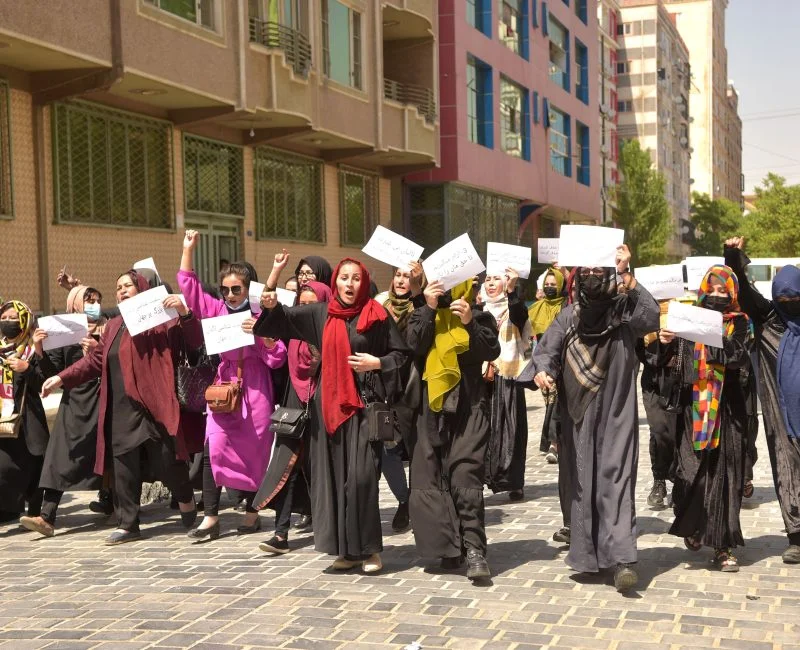
What can we do?
When authorities make life intolerable for women, we have the power, together, to make change inevitable.
Read moreWe need your voice.
Keep challenging injustice
For many years women’s rights movements have fought hard to address violence and inequality; campaigning to change laws, policies, and culture, and taking to the streets to demand their rights are respected.
And new movements have flourished in the recent years, including in response to abortion bans in the USA. Thanks to Amnesty activists and other activists in the state of Arizona, people voted to protect the right to abortion. That means there are now about one and a half million people who can get pregnant in Arizona who will not have to face the horrors of abortion bans.
In recent years women-led movements in Argentina and across South America have successfully overturned restrictive laws banning abortion, securing reproductive healthcare rights.
Closer to home, the Australian government has committed unprecedented funding to address gender-based violence and support services after women took to the streets in their thousands.
When we unite to challenge injustice, we create lasting change
Campaign for real, lasting change
Through research, advocacy and campaigning, Amnesty International pressures the people in power to respect women’s rights.
We expose human rights violations that authorities try to hide. Through advocacy and campaigning, we pressure governments to act. Through global solidarity, we support women human rights defenders at risk.
This includes:
- Researching human rights abuses against women and girls, including in Afghanistan, where Amnesty has concluded that the Taliban’s attacks on the rights of women constitute the crime against humanity of gender persecution against women and girls in Afghanistan.
- Campaigning for states to ratify and implement human rights instruments like the Istanbul Convention that combat violence against women and domestic violence
- Advocating for the Australian government to fulfil its human rights obligations, including to legislate a Human Rights Act that protects women and girl’s human rights, to prevent gender-based violence in Australia.
- Calling or the release of women around the world like Manahel who face imprisonment for their courageous activism.
Together, we are unstoppable
With your support, we will continue to work alongside bold, determined women in defence of human rights. We will document abuses, amplify voices and pressure those with the power to make a difference.
Together we can make the world a place where women and girls can be free from violence and discrimination.
When everyone comes together to support women’s rights, we can do so much. There is so much work to do, but together, we can do it.
CloseWiyi Yani U Thangani
First Nations women and girls hold the solutions to drive transformative change, and achieve gender justice.
Read More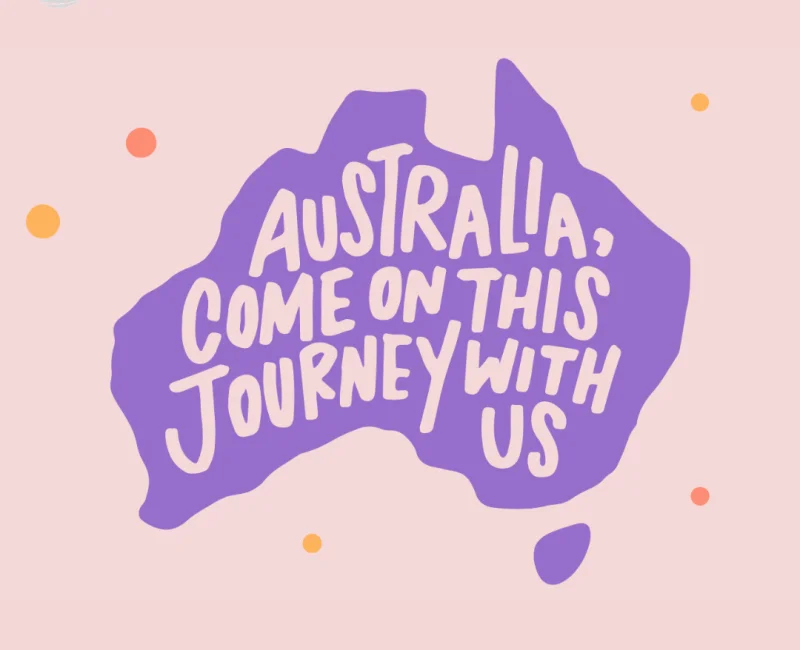
Wiyi Yani U Thangani (Women’s Voices) builds on the legacy of the 1986 Women’s Business Report, which was the first time Aboriginal and Torres Strait Islander women were heard as a collective.
Led by the Aboriginal and Torres Strait Islander Social Justice Commissioner, June Oscar AO, the Wiyi Yani U Thangani (Women’s Voices) project set out to capture what Aboriginal and Torres Strait Islander women and girls consider to be their strengths, challenges and aspirations.
Wiyi Yani U Thangani puts forward an ambitious First Nations women and girl-led agenda to shift the course toward achieving First Nations gender justice and equality. This agenda elevates First Nations women’s voices, knowing that they hold the solutions to drive transformative change.
Amnesty International Australia is a proud supporter of the Australian Human Rights Commission’s Wiyi Yani U Thangani (Women’s Voices) Report and project.
Close